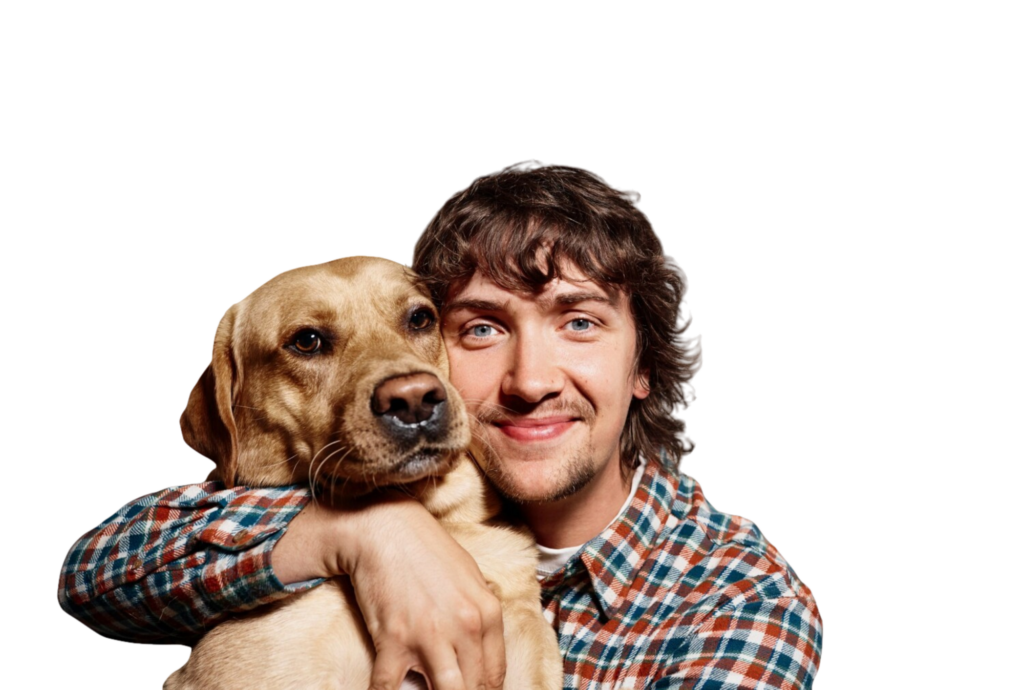Dogs are wonderful creatures. They wag their tails when they’re happy, bark when they’re excited, and sometimes tilt their heads in the cutest way when they are curious. But one behavior that makes many pet owners scratch their heads is yawning. You might see your dog yawn early in the morning, right before bed, or even in the middle of playtime. And then the question comes up: why do dogs yawn?
At first, you might think it’s simple, dogs yawn for the same reason people do. Maybe they’re tired or sleepy. While that is true sometimes, yawning in dogs can actually mean many different things. Dogs yawn to calm themselves, to show emotions, or even to communicate with humans and other animals. In fact, the answer to why do dogs yawn is more interesting than you might imagine.
In this blog, we’ll explore all the reasons why dogs yawn, what it means for their health and emotions, and what you can do if your dog yawns a lot.
What Is a Yawn?
Before we dive into the topic why do dogs yawn, let’s first understand what a yawn actually is. A yawn happens when a dog opens its mouth wide, takes in a deep breath, and then exhales. Sometimes their tongue curls out, and sometimes they make a funny sound. Just like humans, yawns can spread from one dog to another, or even from humans to dogs.
Scientists believe yawning is connected to both the body and the brain. It helps stretch the jaw, increase blood flow, and may even cool the brain. This is why yawning is often linked to tiredness or the need for a quick energy boost.
Why Do Dogs Yawn? The Main Reasons
So now, let’s get to the big question: why do dogs yawn? The truth is, there isn’t just one answer. Dogs yawn for many reasons, and each situation can mean something different. Let’s go through them one by one.
1. Yawning Because They Are Tired or Sleepy
The most common answer to why do dogs yawn is the simplest one, just like humans, dogs yawn when they are tired. After a long walk, a day of play, or when it’s close to bedtime, dogs may yawn as their body’s way of saying, “I’m ready to rest.”
If you notice your dog yawning at night or early in the morning, there’s no need to worry. It usually just means they’re sleepy.
2. Yawning as a Way to Relax
Another answer to why do dogs yawn is relaxation. Dogs sometimes yawn to calm themselves down. For example, if they just had an exciting game of fetch, they might yawn afterward to signal that they’re winding down.
This type of yawning is a way for dogs to move from an excited state to a calmer one. It’s almost like their body hitting the “reset” button.
3. Yawning to Release Stress or Anxiety
One of the most important reasons why do dogs yawn is stress. Dogs often yawn when they feel nervous, worried, or uncertain about something. For example:
- At the vet’s office
- When they hear loud noises like fireworks
- During a car ride if they aren’t used to it
- Meeting new people or animals
In these cases, yawning is not about being sleepy. It’s a coping mechanism, a way for dogs to deal with emotions they can’t put into words.
So if you’ve ever asked yourself, “why do dogs yawn so much at the vet?”, the answer is because they feel stressed, and yawning helps them calm down.
4. Yawning as a Signal to Other Dogs
Dogs are very good at communicating without words. They use their tails, ears, and even their mouths to send signals. Yawning is one of those signals.
In the dog world, yawning is often seen as a “calming signal.” It tells other dogs, “I’m not a threat. I want peace.” For example, if two dogs meet and one feels unsure, it may yawn to show friendliness and avoid conflict.
So another part of why do dogs yawn is communication with other dogs.
5. Yawning When They See You Yawn
This one is fascinating: dogs can yawn when humans yawn. It’s called “contagious yawning.” If you’ve ever yawned in front of your dog and they yawned right after, you’ve seen it in action.
Scientists believe this is a sign of empathy. Dogs are so connected to their humans that they mirror their behavior. It’s their way of showing a bond.
So when asking why do dogs yawn, sometimes the answer is simply: because you did!
6. Yawning When They’re Excited
Have you ever noticed your dog yawning right before a walk, or just before playtime? This is another clue to why do dogs yawn. In these moments, yawning doesn’t mean they’re tired. Instead, it’s their way of managing excitement.
Dogs often yawn when they are happy and eager but need to stay balanced. Think of it as their way of saying, “I’m super excited, but I’m trying to stay cool.”
7. Yawning to Cool Their Brain
Some studies show that yawning may help cool the brain. When dogs yawn, they take in a deep breath of air, which can help regulate brain temperature. If it’s a hot day or they’ve been active, this may be one reason why dogs yawn.
8. Yawning as a Learned Habit
Sometimes, dogs yawn comes down to habit. Dogs notice when yawning gets a reaction from their owners. If every time your dog yawns you pet them, laugh, or talk to them, they might start yawning more often as a way to get your attention.
When Should You Worry About Yawning?
Most of the time, the answer to why do dogs yawn is harmless. It’s a normal behavior and part of being a dog. But sometimes, too much yawning can be a sign of something else.
You should pay attention if:
- Your dog yawns constantly and seems restless.
- Yawning comes with drooling, whining, or pacing.
- Your dog yawns while showing other signs of pain, like limping or refusing to eat.
- Yawning happens along with signs of illness such as vomiting or coughing.
In these cases, it’s best to visit your vet. While yawning is usually harmless, it can sometimes signal stress, discomfort, or even an underlying health issue.
How to Help Your Dog If They Yawn a Lot
Now that we understand why do dogs yawn, what can you do if your pup seems to yawn often?
- Check the Environment – If yawning happens during loud noises or crowded places, it’s likely stress. Try removing your dog from the stressful area.
- Give Comfort – Sometimes, a gentle pet or calm words can help your dog relax.
- Keep a Routine – Dogs love structure. A regular schedule for feeding, walks, and sleep helps reduce stress.
- Exercise and Play – Dogs need activity. A good walk or play session can prevent boredom and reduce anxious yawns.
- Look for Triggers – Notice when your dog yawns the most. Is it during car rides? At the vet? Around strangers? Understanding triggers can help you support them better.
Fun Facts About Yawning in Dogs
Since we’ve covered the serious side of why do dogs yawn, here are some fun facts to enjoy:
- Puppies yawn more than adult dogs because they are still learning how to manage emotions.
- Dogs can “catch” yawns not just from people they live with, but also from strangers.
- Some trainers use yawning as a trick! Dogs can learn to “yawn” on command for treats.
- Wolves, the ancestors of dogs, also use yawns as social signals in the wild.
The Human-Dog Connection in Yawning
One of the most heartwarming answers to why do dogs yawn is the bond they share with humans. When your dog yawns after you do, it shows a level of empathy and connection that is rare in the animal kingdom. It’s proof that dogs truly understand and mirror our feelings.
This contagious yawning is not just about sleepiness, it’s about love and trust.
Yawning and Grooming: Keeping Dogs Comfortable
While talking about why do dogs yawn, it’s also worth mentioning that yawning can happen during grooming. Some dogs yawn when they’re brushed, bathed, or having their nails trimmed. This usually means they’re a little nervous or unsure, but they’re trying to stay calm.
This is where services like mobile dog grooming can help. Instead of going to a busy salon, mobile groomers come to your home. This keeps your dog in a familiar space, reduces stress, and makes the grooming process more comfortable. So if your pup yawns during bath time, it may be a sign they’d prefer a calmer grooming experience.
Conclusion: Why Do Dogs Yawn?
So, why do dogs yawn? The answer isn’t just one thing, it’s many. Dogs yawn because they’re tired, relaxed, stressed, excited, or even just because you yawned. Yawning is a natural part of being a dog, and in most cases, it’s perfectly normal.
By paying attention to when and where your dog yawns, you can understand their feelings better. Sometimes a yawn means “I’m sleepy,” sometimes it means “I’m a little nervous,” and sometimes it simply means “I love you enough to copy you.”
The next time you see your pup stretch their mouth wide and let out a big yawn, remember, it’s not just about being tired. It’s one of the many ways your dog communicates with you and the world.
Final Word
Dogs may not speak our language, but their yawns, barks, and tail wags all tell a story. Now that you know the many answers to why do dogs yawn, you’ll be able to read your dog’s emotions more clearly and give them the comfort and care they deserve.



